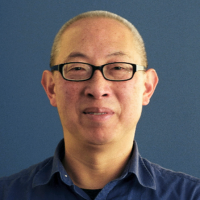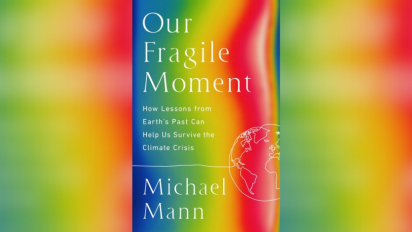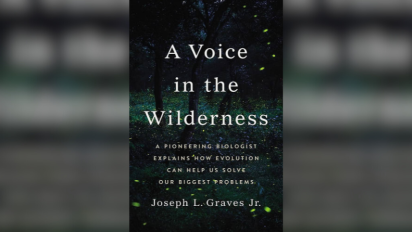Random Samples with Joseph L. Graves Jr.

Joseph L. Graves Jr. is MacKenzie Scott Endowed Professor of Biology at North Carolina Agricultural and Technical State University, where he studies the genomics of adaptation as well as biological and social concepts of race in humans. He is the author of The Emperor’s New Clothes: Biological Theories of Race at the Millennium (2001), The Race Myth: Why We Pretend Race Exists in America (2004), Principles and Applications of Antimicrobial Nanomaterials (2021); Racism, Not Race: Answers to Frequently Asked Questions (2022, with Alan H. Goodman), and most recently A Voice in the Wilderness: A Pioneering Biologist Explains How Evolution Can Help Us Solve Our Biggest Problems (read our review). He joined NCSE’s board of directors in 2021.
Paul Oh: What motivated you to write A Voice in the Wilderness?
Joseph Graves: This book is the story of why and how I became an evolutionary biologist. It is meant to encourage others who belong to socially subordinated groups to pursue their dreams, and how doing so can make a difference for their communities, as well as the rest of the world.
PO: You write in A Voice in the Wilderness that “evolutionary science will not only help us survive the existential crises facing us, but also help us im- prove the human condition.” Please say more.
JG: While existential crises have always been with us, those we face now are both qualitatively and quantitatively different. These include the emergence of novel pathogens as human populations begin to encroach more and more upon what remains of the natural world, environmental crises that are being precipitated by anthropogenic climate change, and the spread of racism and authoritarian forces across the globe that threaten what remains of democracy. I argue in Voice that without deploying our understanding of human evolution towards the establishment of social justice, we will not be able to successfully meet any of these crises.
PO: You’ve repeatedly stated that evolutionary science is indispensable in arguing against racism. Can you briefly articulate that argument here?
JG: All racist ideologies are based on the idea of the existence of profound biological differences between purported races of humans. Specifically, that Eurasians possess evolved biological differences in intelligence and personality that have allowed their success in founding and maintaining great civilizations, and that the problems of these modern societies stem from the genetically innate inferiority of persons of African descent. In a series of peer-reviewed journal publications and three books (The Emperor’s New Clothes, The Race Myth, and Racism, Not Race) I debunk not only the existence of biological races within our species, using evolutionary principles, but also the idea that some populations within our species are innately better or worse than others. Specifically, I have shown how natural selection and genetic drift have never acted in a way to provide superior intelligence to some populations and not others.
PO: A Voice in the Wilderness intersperses your personal experiences with your work and research. How have your personal experiences shaped the scientist you have become?
JG: Science has never been simply the objective examination of nature. The questions that individual scientists, as well as the enterprise of science as a whole, pursue are influenced by the social position of the scientists themselves. Born a second-class citizen of the United States, and educated in a system of white supremacy, I became sensitive to how that enterprise differentially benefited some groups, and often ignored the needs of others. The agenda of modern science is still tainted by its focus to provide comfort for the wealthy. This has the effect of narrowing the demography of science. My success in opening the doors to science careers for historically marginalized populations results from my focus on deploying science for the purpose of social justice.
PO: How do NCSE’s efforts to ensure that all students get an accurate science education resonate with your own priorities as an evolutionary biologist and scholar?
JG: I joined the board of NCSE precisely because of its work to protect the quality of science instruction for all students. If evolutionary science and climate change are lost to the curriculum, then the most powerful tools for understanding biology and society are also lost. This would differently impact the communities that are already suffering from a lack in investment in their education. We dare not allow the attacks on critical thinking and science to continue.





